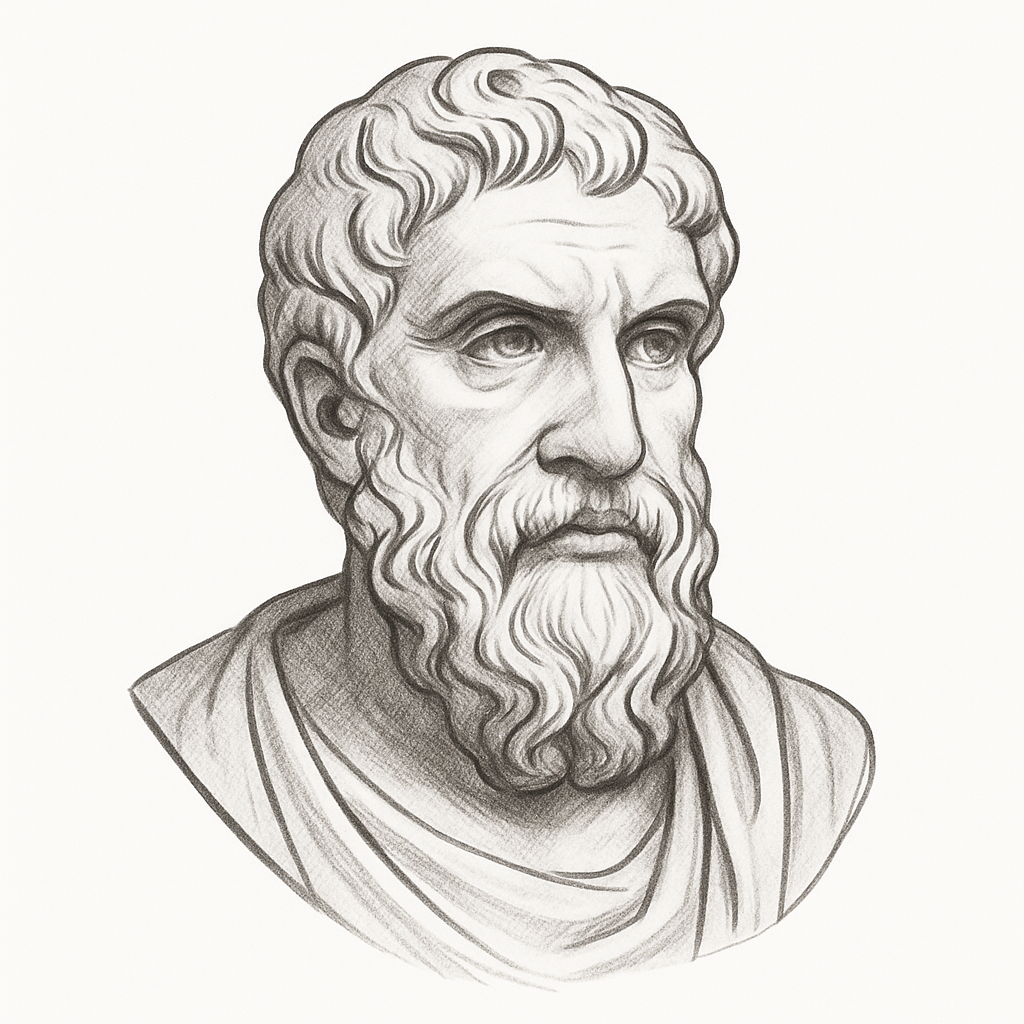Dichotomy of Control: Identifying What Is within Our Power
The Stoic philosophy places significant emphasis on discerning between what lies within an individual's power and what does not, framing this distinction as a cornerstone of wisdom and tranquility. This principle is not merely a piece of advice but a fundamental lens through which all human experience is to be understood.
Defining What is Within Our Power
Stoicism clearly defines the scope of human control as primarily internal. As Epictetus states, "Some things are in our control and others not. Things in our control are opinion, pursuit, desire, aversion, and, in a word, whatever are our own actions" (Epictetus, The Enchiridion, Chapter 1). This means that our judgments, intentions, and reactions are sovereign domains. Our "will is in my power," and therefore, the true source of good and bad is found "within, in the things which are my own" (Epictetus, The Discourses, Book 2, Chapter 5). This internal sphere encompasses our mind and choices (Epictetus, The Discourses, Book 1, Chapter 24), implying that virtue and greatness of soul originate from within, rather than being sought from external sources (Epictetus, The Discourses, Book 1, Chapter 9). In contrast, externals such as reputation, health, wealth, or the actions of others are considered beyond our direct control and should be relinquished as they were never truly ours (Epictetus, The Discourses, Book 1, Chapter 24).
A Major Stoic Principle
The distinction between what is within one's control and what is not is unequivocally a major Stoic principle. It is explicitly stated as a core tenet, advising individuals to "distinguish between what is within your control and what is not, focusing your concern only on the former" (Epictetus, The Enchiridion, Chapter 1). This principle is so foundational that Epictetus counsels against seeking specific advice for every situation, instead recommending the mastery of this general principle, which he asserts "will prepare you for anything" (Epictetus, The Discourses, Book 2, Chapter 2). This understanding shifts one's "true, proper work" from mere engagement with worldly affairs to the philosophical task of comprehending one's own nature and discerning what is genuinely good or bad (Epictetus, The Discourses, Book 1, Chapter 10). Indeed, the Stoics argue that if "things which are independent of the will are neither good nor bad, and all things which do depend on the will are within our power... where is room left for anxiety?" (Epictetus, The Discourses, Book 2, Chapter 13). This rhetorical question highlights the central role of this principle in achieving inner peace and freedom from distress.
Leading to Wisdom and Right Action
Knowledge of this distinction is presented as a direct path to wisdom. Seneca defines wisdom as "the perfect good of the human mind," which philosophy strives to attain (Seneca, Moral Letters to Lucilius, Chapter 89). To act wisely, one must align their actions with "what man's nature requires," which stems from principles guiding one's affects and acts (Marcus Aurelius, Meditations, Book 8). This implies a conscious awareness and control over one's internal principles. The wise individual, according to Seneca, "regards the reason for all his actions, but not the results," recognizing that while "the beginning is in our own power; fortune decides the issue" (Seneca, Moral Letters to Lucilius, Chapter 14). This demonstrates a focus on what is controllable (the intention and effort) rather than the uncontrollable (the outcome).
Furthermore, acting in accordance with this principle involves a rigorous examination of one's perceptions, as "every action is a response to a perception of what is true or good" (Epictetus, The Discourses, Book 1, Chapter 28). By scrutinizing these perceptions, one can avoid the "ignorance and inexperience" that lead to inconsistently labeling things as good or bad (Epictetus, The Discourses, Book 2, Chapter 3). This critical self-assessment ensures that actions are rooted in a clear understanding of what truly contributes to virtue, which is inherently within one's power and not subject to external restraint (Epictetus, The Discourses, Book 2, Chapter 23). Thus, distinguishing between what is within our power and what is not is not merely an intellectual exercise but a practical foundation for living a life of wisdom, virtue, and inner freedom.
Key Passages
Some things are in our control and others not. Things in our control are opinion, pursuit, desire, aversion, and, in a word, whatever are our own actions.— The Enchiridion by Epictetus
Externals are not in my power: will is in my power. Where shall I seek the good and the bad? Within, in the things which are my own.— The Discourses by Epictetus
This is wisdom, this is what being wise means—not to bandy empty subtleties in idle and petty discussions. Fortune has set before you so many problems—which you have not yet solved—and are you still splitting hairs?— Moral Letters to Lucilius by Seneca
Disclaimer: Article generated using Memento Vivere AI tool, and is grounded solely in the works of Epictetus, Seneca and Marcus Aurelius. For informational purposes only. Not a substitute for professional advice.
